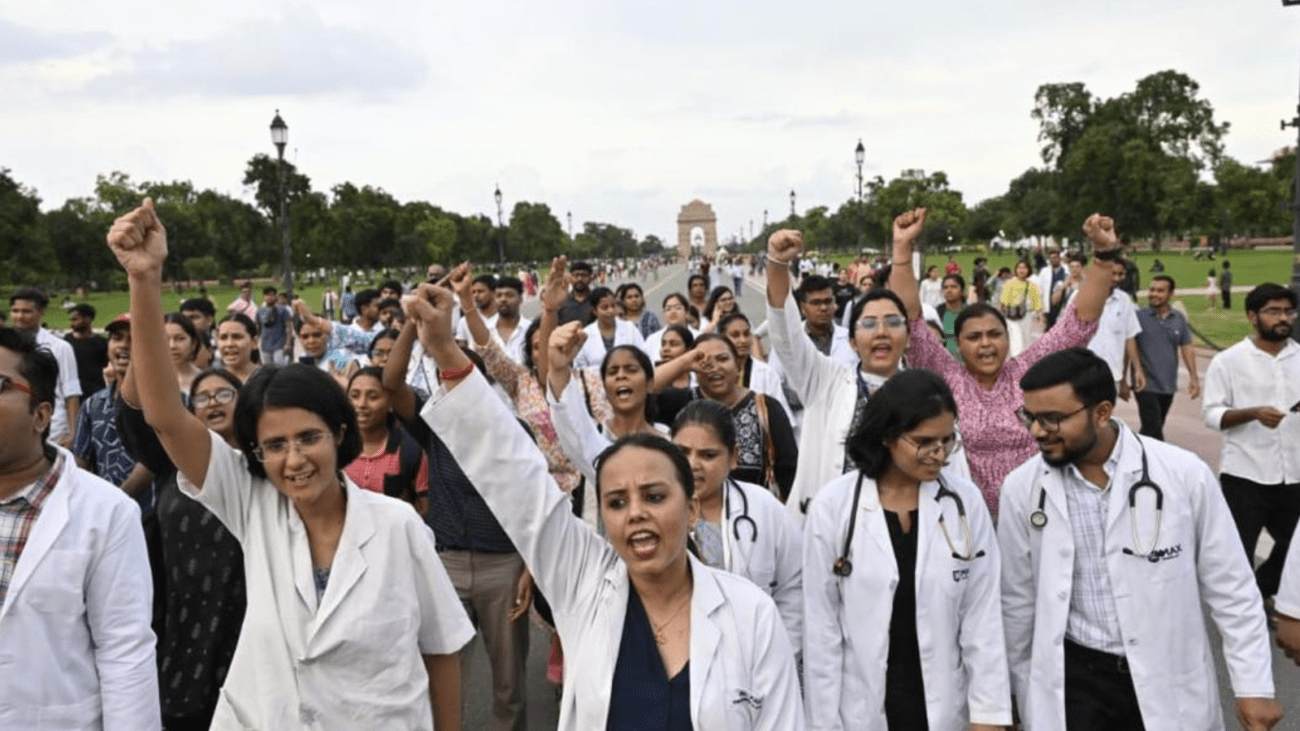Post-Graduate Doctor’s Assault and Murder Case: A Tragic Turn of Events in Kolkata


The death of a young female post-graduate doctor, who was brutally raped and murdered in the RG Kar Medical College and Hospital in Kolkata, has caused a wave of shock in India. The case has led to widespread protests and has put into public discourse various underlying issues about safety, justice and working conditions for medical practitioners in the country. This blog assesses the incident in detail, its fallout as well as its implications on the society as a whole.
Background of the Incident
On a Thursday morning in August, the 31-year-old body of a post-graduate trainee doctor was discovered in the seminar hall of RG Kar Medical College and Hospital – one of Kolkata’s premier medical institutions – in West Bengal. The doctor’s face had been smashed up, a clear indication she had been assaulted. The post-mortem report revealed that the woman had been raped before her murder, powerfully bringing to light its own set of vulnerabilities, while also revealing the gaping holes in the security, and management, of one of Kolkata’s premier medical colleges.
Immediate Reactions and Arrest
The news of the doctor’s murder was met with widespread outrage. On 10 August, the police arrested a suspect named Sanjay Roy on charges of rape and murder, based on prima facie evidence suggesting that he had assaulted her at the scene of the crime. The speed with which the police arrested the accused gave us some hope that a suitable justice would be meted out. The question, however, remained as to how a crime could have taken place in what was supposedly a secure setting.
Protests and Demands for Justice
The incident sparked protests from doctors, medical students and civil society organisations across the board. The Indian Medical Association (IMA) and other medical bodies called for immediate action and justice for the slain doctor. On 11 August, the West Bengal government suspended the superintendent of RG Kar Medical College and Hospital for alleged negligence of security and oversight leading to the crime.
Resignations and Escalation of Protests
The situation escalated on 12 August when the Principal of RG Kar Medical College, Professor Dr Sandeep Ghosh, resigned his post, saying that he felt morally responsible for the episode. The Federation of Resident Doctors’ Association (FORDA) also announced a suspension of elective services in support of the protests, demanding better safety of doctors and stringent action against the perpetrators.
Judicial and government interventions
This crescendo of protests led to serious disruptions in healthcare services all over India. On 13 August, the Calcutta High Court took note of the case and ordered that the former Principal of RG Kar Medical College ‘should go on leave for quite some time, so that the investigation does not face any interference from the college administration’. This was followed by the sacking of the then Principal, Dr Sanjay Chakraborty.
On 14 August, the Central Bureau of Investigation (CBI) picked up the alleged culprit Sanjay Roy and started to investigate the case. The involvement of the CBI was considered essential given the wide public interest and gravity of the crime.
Violence and Further Tensions
However, as the case gained national attention, tensions in Kolkata heated up. On 15 August, an unidentified mob attacked the RG Kar Medical College and Hospital, smashing the emergency room and nursing station.
National Strike and Call for Government Action
In response to the simmering outrage and an attempt to force the hand of the government into taking more decisive action, the Indian Medical Association announced a 24-hour nationwide strike on 17 August, aiming to protest against the rape and murder of the trainee doctor and to protest against the harassment of the doctors who were protesting peacefully. The strike paralysed medical services throughout the country, bringing attention to the urgent need for safety and justice.
That same day, the President of the IMA, Dr RV Asokan, issued a public statement calling on Prime Minister Narendra Modi to ‘personally intervene’ in the case, stressing that ‘it is time that the highest echelons of government take decisive action and ensure that justice is done’.
Concerns About Evidence Tampering
As the drama developed, the National Commission for Women (NCW) brought another troubling issue to the attention of the public. The NCW stated that unAuthorised renovations had begun at the site of the crime in the RG Kar Medical College and Hospital, and that the renovations might destroy key evidence. This claim added to the growing clamour for transparency and accountability.
Conclusion
The rape and murder of the post-graduate doctor in Kolkata shone a light on the grave problems of safety and justice in India, and also sparked a national movement to provide protection for doctors. The protests, court cases and representative responses that followed were fuelled by pent-up anger and a desire for dramatic change.
And the investigation will hopefully make sure that justice is done – not just to the victim, and her family, but to those who labour to make the healthcare system work on a daily basis. The case is one of many that demonstrate the need for systemic changes to improve the protection of the most vulnerable members of our society and the rule of law in all areas.
Read More News here :https://whatshappening.pk/imran-khan-oxford-chancellorship-bid/








Imran Khan's Bid for the Chancellorship of Oxford University
22nd Aug 2024[…] Read More News here :https://whatshappening.pk/post-graduate-doctors-assault-and-murder-case-a-tragic-turn-of-events-in-k… […]